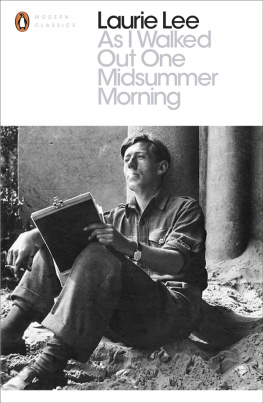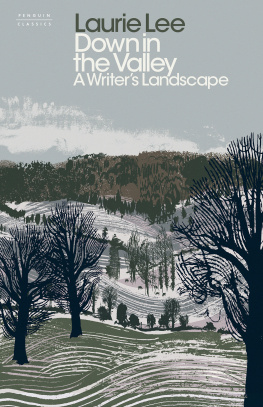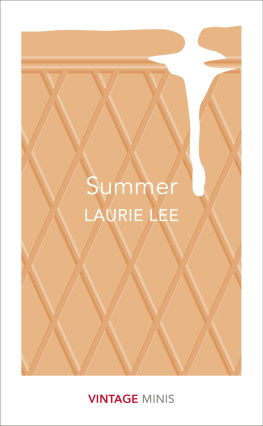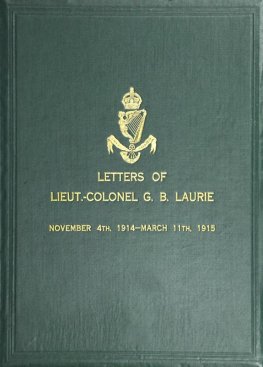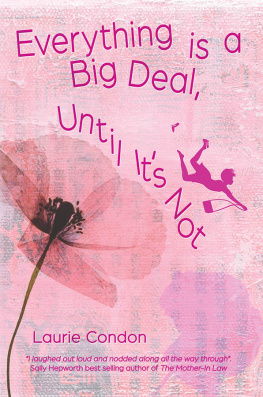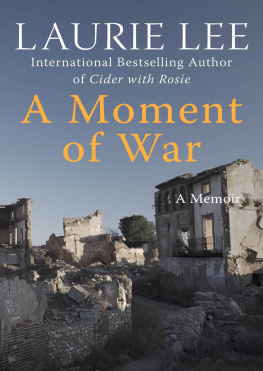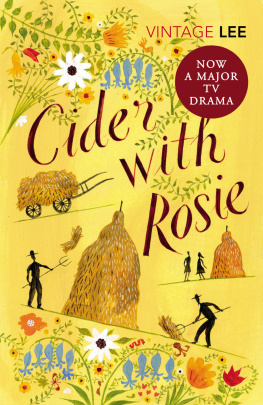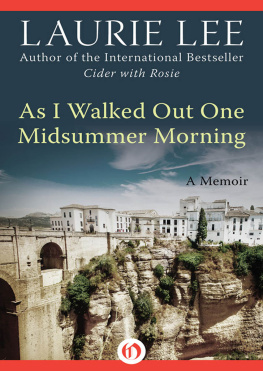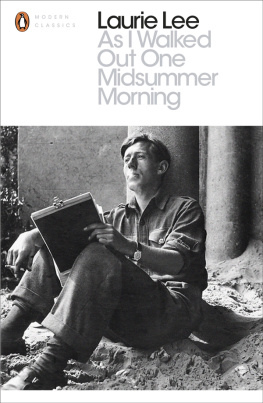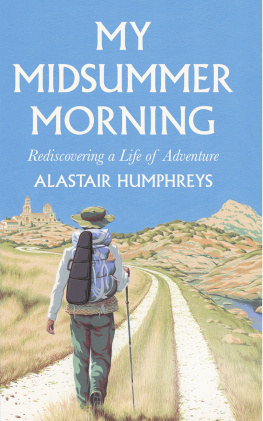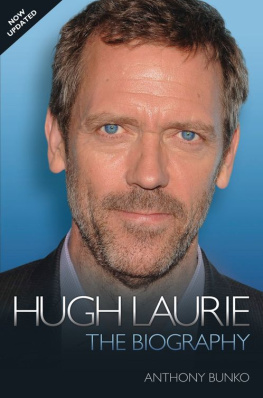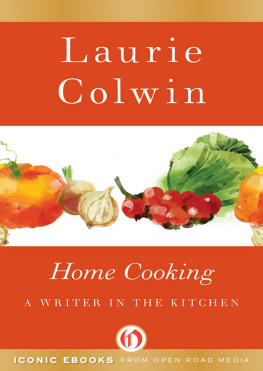Preface
F OR some considerable time now I have had spread around my workroom floor odd piles and packages of manuscripts the result of a generation of occasional prose writings which have increasingly seemed to me, as I continued to trip over them, non-negotiable in more ways than one.
At last I thought that the best thing to do was to gather them into a book, or at least a selection of them partly as a means of clearing the barnacled chaos of my room but also as a way of revisiting dimly remembered experiences and exercises.
I had not re-read a number of these pieces since first I wrote them some as long as a couple of decades ago and what strikes me most strongly about a lot of them now is their confident enthusiasm and unabashed celebration of the obvious.
There may be a simple explanation for this. When I first left my country village, at the age of nineteen, I found an outside world that was sparkling and new. The astonishment and pleasure at what I began to discover around me has continued almost undiminished to the present day. Hence the tone of voice of many of these pieces.
I suppose the selection, on the whole, is a kind of scrap-book of first loves and obsessions. It is roughly divided into three parts. Part One covers some early recollections of my country childhood and my departure from it. Part Two contains certain abstract considerations of love and the senses, and more immediate experiences of birth and death. Part Three is simply devoted to a series of voyages, arranged more or less in the order in which they happened. Many describe visits to places in which I found unclouded warmth and welcome, when to be a traveller was not yet to be just a labelled unit. They are therefore, for the most part, memorials to times and countries whose best is probably past and gone. Jet-tourism and war has finished off most of them. Prosperity has fortunately fattened but irradicably changed the rest. I think I was lucky to have known them when I did, before darkness began to fall from the air.
True Adventures of the Boy Reader
O NE of my earliest memories is that of a small boy sitting in our village street surrounded by a group of grey-whiskered old men. Bored and fidgety, his mind clearly elsewhere, he is reading aloud in fluent sing-song the war news from a tattered newspaper.
This boy and I were of one generation and we shared the same trick of enlightenment: we were both the inheritors, after centuries of darkness, of our countrys first literate peasantry. My mother and father, the children of a coachman and a sailor, read well and were largely self-taught. But their parents could do little more than spell out their names which they were not often called on to do and if given a book were likely to turn it over in their hands, cough loudly, and lay it aside.
Not that there were many books available at that time; our elders had little more to contend with, in the way of printed script, than their almanacs and their Sunday psalmbooks, which, of course, they knew mostly by heart. About the only other bound reading material available to greet the new gift of literacy were the widely-sold Penny Readers, which offered irreproachable love stories of an unearthly gentility, tales of martyrs and foreign missionaries, collected church sermons and strictures on drink, and certain moral epics devoted to the loyalty and devotion owed by the serving classes to the gentry.
Even so, the existence of these Penny Readers created a revolution in home entertainment, and the gossip of grannies in chimney-corners began to be silenced by family readings aloud. It was through this practice that I first knew the printed word, its power and its glory, its persuasive magic and ready gift of hallucination.
Many a winters night we would settle round the lamp-lit kitchen, after supper had been cleared away, while our mother took down one of her Penny volumes and read to us by the hour. Through mothers voice, and the awful tales she read, we saw the world through crystal casements, never doubting that this was the way it looked or that its peoples were less than the noblest. Alas, I can remember but two volumes now (perhaps they were all we had). One was J. Cole, the life-story of a footman who became a butler through thrift and prayer; and the other, called simply Although He Was Black, a posthumous tribute to a young Negro house-boy who, in spite of his colour, made good as a servant by sacrificing his life to his employer in a fire. These tales, in spite of their frequent readings, never failed to bathe us in tears.
Perhaps through over-indulgence in mothers fireside entertainments I was myself a tardy reader. When I was lent my first book, by a rich old neighbour, I thought she was off her head. It was called Aikmans Scotland and was bound in red leather and was just a three-dimensional object to me. Then one day the old lady stopped me in the street and asked me how I was enjoying the book, adding that she only lent it to me because she knew I loved reading and that I would treat it with special care. I was astonished; it had never occurred to me to read it; I had used it as a tunnel for my clockwork train.
At that time, in those Cotswold villages of the twenties, we may have been literate, but were by no means literary. We had no regular newspapers and of course no radio or television, and were as yet unracked by their tortuous linguistics. We were the inheritors still of an oral tradition of language, and the stream, though thin, was pure. Outside our own class, which was that of farms and cloth mills, hardly anyone spoke to us save from the pulpit. Our vocabulary was small, though naturally virile; our words ancient, round, warm from the tongue. If we were affected by any literary influence at all, it was from the King James Bible.
Such was my background, and in some ways it still rules me. I am made uneasy by any form of writing which cannot readily be spoken aloud. From my earliest years, as soon as I could read, I was at home only with those particular classics which approached in style our country speech and the Bible. The three books that continue to stand out like megaliths in the empty reaches of my early reading are Pilgrims Progress, Robinson Crusoe and Gullivers Travels. As I read them then, so I read them now with instant recognition. There are old folk still living in the village today who continue to address each other with the austere formalities of Christian addressing the demons. Robinson Crusoes is the voice of a local bachelor-farmer boasting how he got through the year singlehanded. The satirical fantasies and crudities of Gulliver are still much the mood of our village inn.
I was at the village school when I read these books (having bought the three of them at a rummage sale for a penny). At the school itself there were few books, except things about Cats and Mats, or terse little pamphlets stating that Jill was Ill and Jack had Broken his Back. Those were innocent, crisp, monosyllabic days, of which I was the last to complain.


